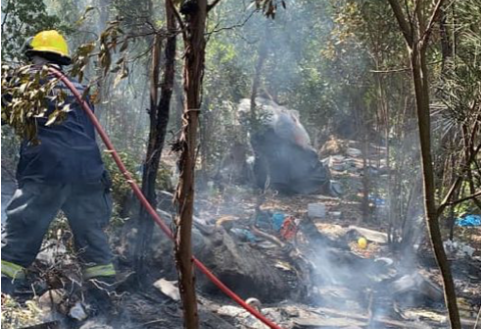A fire that broke out in the Oudekraal area was quickly extinguished by the NCC Environmental Services on Friday, November 27. They were assisted by the City of Cape Town’s Fire and Rescue Service.

On November 4, the Department of Environmental Affairs said it is preparing for an extra-risky fire season. The added risk is because the COVID-19 lockdown prevented the fire department from doing its fire breaks and regular preparatory work in high-risk areas.
“This year we haven’t been able to do all the fire breaks to the levels of previous years and all the regular preparation work in risky areas of the province was severely disrupted due to the Covid lockdown,” said the Western Cape’s minister of Local Government, Environmental Affairs and Development Planning, Anton Bredell, at the time.
“We also had a lot of rain this year. This was positive in one sense, but in another, it contributed to huge increases in biomass which provides fuel to wildfires.”
The five main causes of wildfires are:
Intentional: Arson is a malicious and criminal act of deliberately starting fires.
Smoking: Discarded cigarette butts can also cause wildfires, either from workers working in the fields or bush, passing pedestrians or motorists.
Cooking fires: Open fires for cooking and discarded hot ashes can cause wildfires, particularly in nature conservation areas or on farms.
Burning of debris: Permitted and un-permitted burning of debris, if badly managed or if weather conditions change suddenly, can cause fires.
Lightning: Lightning is a cause of both wildfires and structural fires.
Here are important municipal numbers to keep on hand to report a wildfire sighting:
City of Cape Town: 107 or 021 480 7700 and 080 911 4357
Overberg: 028 425 1690
West Coast:022 433 8700
Eden: 044 805 5071
Central Karoo: 023 449 8000
Cape Winelands: 021 886 9244 / 021 887 4446
Picture: NCC Environmental Services/Twitter

